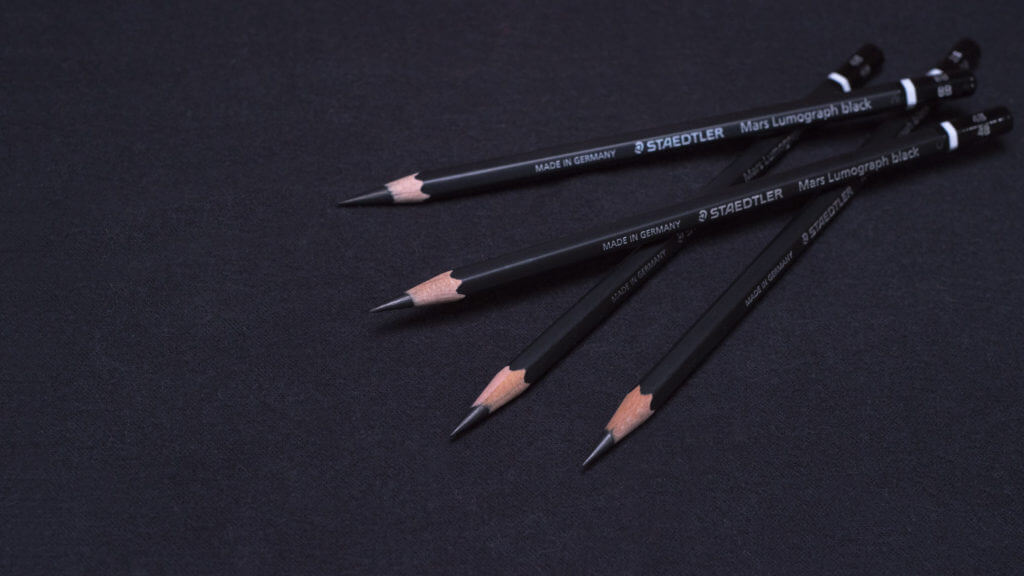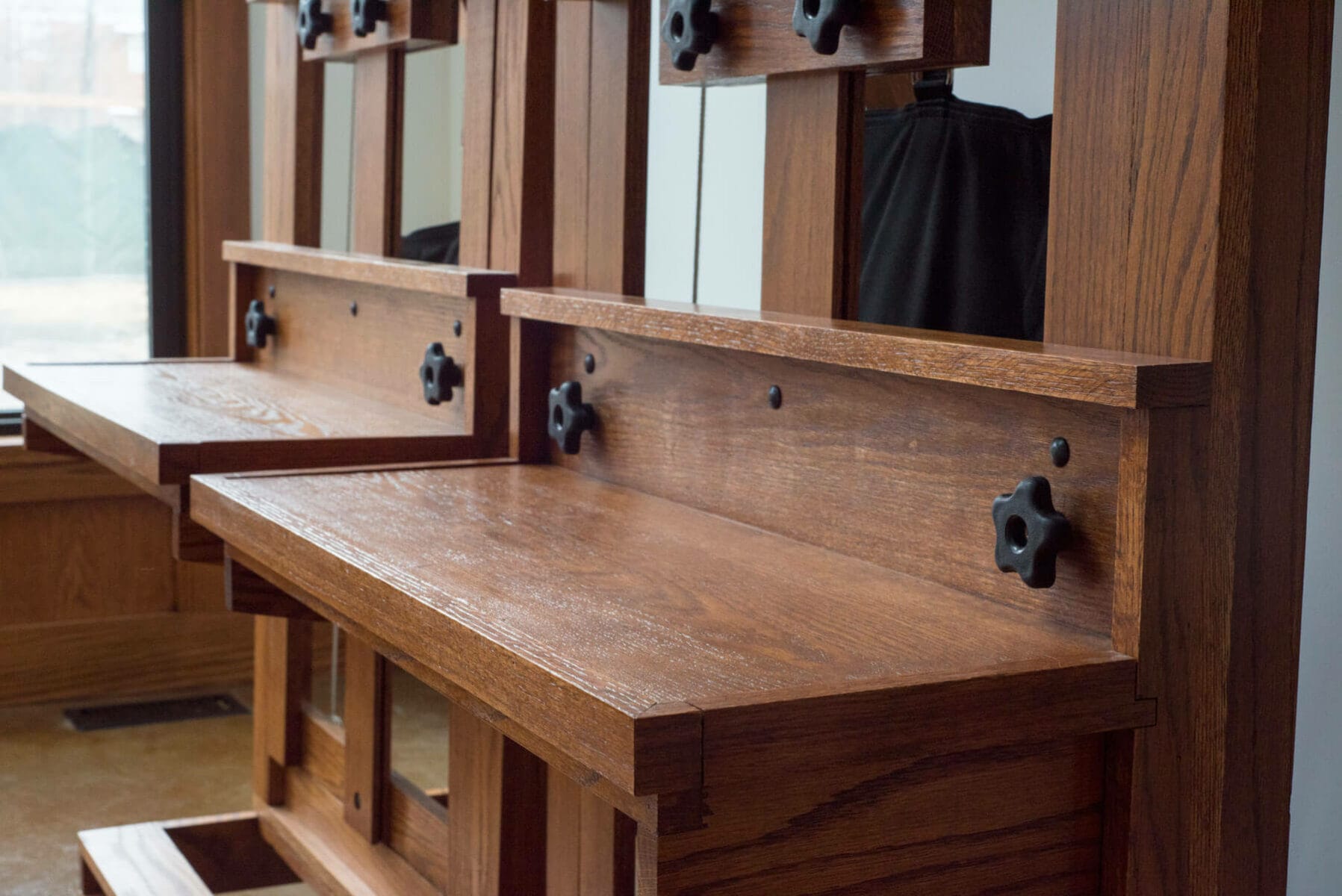8 Lies That Stop You From Being a Good Artist

Learning to draw is like taking a hike through a dark, mysterious forest that you’ve never visited before. Because you like challenging yourself, you take a deep breath and head into the woods alone. You’re inspired by what you see, and you’re proud of yourself for venturing off of your normal path and exploring this entirely different world. However, because the forest is dark and this path is unknown to you, you quickly become afraid. Every noise and shadow is amplified.
Suddenly, this journey shifts from exciting to intimidating. Should you push past your fears and continue down the path or should you turn back to what’s familiar?
If you opt to continue on your trek through the forest, you’d find that those ominous sounds were actually coming from small animals playing amongst the leaves. There was nothing to be afraid of after all.
Learning to draw is similar. It’s easy to get scared away by our own thoughts. But, by confronting those ideas that hold us back, we can discover a new path.
In this post, we’ll look at the most common fears we have about learning to draw.
[content_upgrade cu_id=”40328″]Here’s a list of 10 quotes you need to read about the artistic experience.[content_upgrade_button]Click Here[/content_upgrade_button][/content_upgrade]
Fear #1: I’m not talented
That’s not true. If you can hold a pencil steady enough to write your name, you can learn to draw. It may be that some of us are able to grasp concepts and apply them more readily, while others have to work a little harder, but don’t let that hold you back. We have yet to meet the student who simply “can’t draw.”
Besides, “talent” is over-rated. The ability to draw well isn’t an instinct. It’s not the product of intuition, or a gut feeling. No one is born an artist, or a musician, or even an accountant. Every skill we acquire throughout our lives takes practice.
Successful drawing is actually the product of analysis. If you observe your subject carefully, ask the right questions, employ a reliable method, and above all else – lots of practice, your drawings will improve. We’ve seen it work with students countless times.[bctt tweet=”Natural talent doesn’t dictate your ability to draw. Here’s why:”]
Fear #2: I’m Not Creative
Well, that’s just silly. Humans are creative beings. If you’ve ever made dinner from scratch (be it
But it doesn’t matter anyway. Learning to draw is not about “creativity.” It’s about developing skills. Even with an abundance of ideas for the art you want to make, you still need a skill set to take you from holding a pencil to precisely recreating what you see in front of you.
Fear #3: I’m Too Old
You’ve always wanted to learn how to draw. When you were a kid, you enjoyed doodling or had an appreciation for realistic artwork. Then life happened, and you gave up on your childhood dream to draw. Now that you’re several decades removed, is it too late to learn how to draw?
Of course not! Your brain doesn’t lose its ability to learn new things simply because you’re getting older. In fact, the self-discipline that often comes with age can be a huge asset in this kind of learning.
Fear #4: It Will Take Many Years to Become a Good Artist
What do we mean by “good?” While it’s true that, through practice, your skills will get better with time, it’s also possible to make progress with your drawing ability in just a few weeks. “Good” is better than what you were yesterday, last week, last year, etc. Plus, we all know that “good” is subjective.
Instead of lamenting how long it will take to reach some arbitrary, subjective milestone, focus on improving your current skills. “Progress” is a reasonable goal. “Good” doesn’t really mean anything specific.
Fear #5: I’ll Never be as Great as _________
Comparing yourself to others is never a good idea. It’s ok to be inspired by other artists, but take your own path. Your work is your work, and exists on its own merits. This is one of the more difficult things to accept as a developing artist, because there is so much great artwork out there.
Just remember: every artist, today and in the past, has struggled with the same fears as you. Everyone has heroes they look up to. Deep-down, everyone feels that their own work doesn’t measure up. But in the end, role models can help you because they show you what’s possible, providing direction and goals for your work. That’s hugely valuable!
Fear #6: I Don’t Have Enough Time to Learn to Draw
If you have enough time to read this article, you have enough time to improve your drawing.
Even a few minutes each day is better than nothing at all. The trick is to turn it into a commitment. That means adding drawing practice to your daily schedule. Make it a priority. If you devote 20 minutes each day to
If you have time to watch your favorite TV show, you have time to sharpen your drawing skills.
Fear #7: What If People Don’t Like My Work?
This is a common fear for many of us. After pouring your heart and soul into a drawing, after getting the courage to share it with others, some random person says that they don’t like it, and just like that, your world begins to implode.
It’s a horrible feeling, and one that we try to protect ourselves from at all costs, even if that means not trying to achieve something in order to avoid ensuing humiliation.
Instead of making it about others, make it about yourself. Learn to draw, not to impress others, but to impress yourself and stretch your skills. When your drawing motivation is to improve and express yourself, you won’t focus as much on the critique of others.
Their criticism won’t diminish your progress. Keep pushing forward.
Fear #8: I’ve Tried Drawing Before But I Feel Stuck
Progress is always non-linear. If you’ve ever tried to lose weight, quit smoking, or improve your job performance you’re already familiar with plateaus and setbacks.
Learning to draw is no different. Each drawing you make will feel different. You’ll be happy with some, and not with others. In either case, your focus should be on making your next drawing better.
Sometimes a minor change to your procedure can break you out of a rut. Try drawing a different subject, or experiment with new materials. Stock up on different kinds of paper and pencils and focus on experimentation for a while. Take a class or a workshop. It’s common to experience “Aha!” moments when you divert your attention from your perceived lack of progress, and try something new.
Think of it this way: if your goal was to get in shape, and you felt you weren’t making progress at the gym, the last thing to do would be to stop exercising. Instead, you’d make changes to your workout. Tailor your drawing practice to fit your goals, and don’t be afraid to shake things up if the status quo isn’t working for you.
But What About Bears?
Continuing with the forest metaphor, sometimes there are legitimate things to fear in the forest. Bears might be one of those things.
A bear could be considered any valid concern you may have or any seemingly insurmountable obstacle that you may encounter when learning to draw or paint.
This is why you shouldn’t walk alone. When you’re new to the forest (i.e. the world of drawing), you can always benefit by having a guide— someone who’s walked this path before, knows all the best outlooks, and more importantly, knows how to handle bears. Besides, I actually really love bears!
Let us be your guide. Check out our drawing basics course here.
[content_upgrade cu_id=”40328″]Don’t forget to download this list of quotes that every beginner artist needs to read.[content_upgrade_button]Click Here[/content_upgrade_button][/content_upgrade]








I have made many attempts and spent 100 plus hours trying to learn to draw. The drawing books don’t explain things in enough detail for me to figure out.
https://learningtodrawweb.wordpress.com/
Yes,Yes and Yes,I sketch people at a diner or wherever at lunch or dinner,quickly and spontaneous. Then I give them my sketch,whether they like it or not,the sketch that is,I do not ponder it.They seem surprised and complimentary,I always say,you can discard it if you like.Are they being polite to an old man who likes to draw or do they like it?I do not take the time to measure or block in with detail,I draw and enjoy it,I am now eighty years,disabled firefighter,who enjoys studying peoples expressions and capturing that period in time.You and your husband are amazing artists and instructors.
Hi Don, thanks so much for your very kind words! I think what you’re doing is so wonderful and the more drawing you do, the better. We see it as the same as learning a language or playing an instrument… the more immersion and practice, the better you become with your skills. Keep at it! Warmly, Mindy
Thanks for this Melinda, these 8 lies have summed up all my thoughts and feelings when I first started drawing and now as I started oil painting but I believe that the online courses that I have been studying at Vitruvian have greatly changed my mindset and given to me confidence, but I still do have my moments of doubts! Great article.
Thanks Patrick and I’m so glad to hear you’re having success with the online courses! And do know that even as your confidence grows and you have more experience under your belt, the little doubts may still come knocking… but you know that you don’t have to answer that door… you’re much too busy making beautiful drawings and paintings! Even for me and David, we still have those feelings, but we’re so much better at ignoring them and pushing on with our work. It makes me focus better!